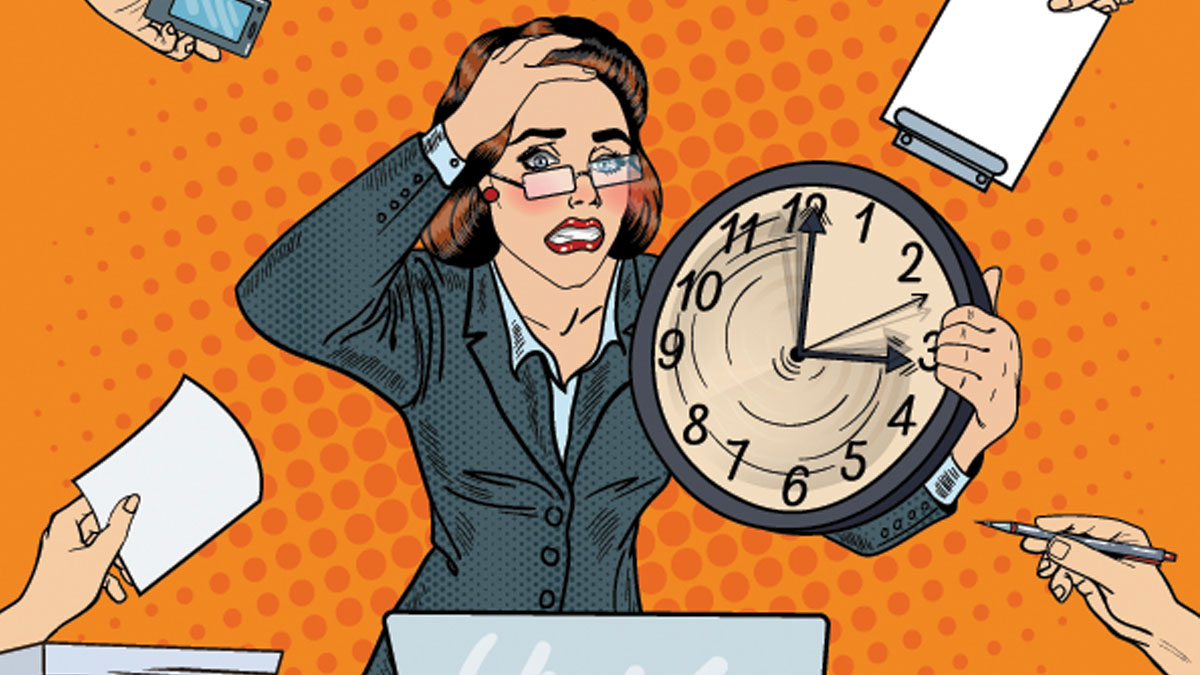“The price of greatness is responsibility.” – Winston Churchill
When I was dwelling in my worst burnout period, it was because I had no control over my natural strengths and talents. The natural strength most out of control: Responsibility.
Responsibility is one of my top five CliftonStrengths. My epiphany about my Responsibility strength and it’s effect on my burnout came after taking a CliftonStrengths assessment.
My results – specifically my Top 5 Strengths – allowed me to see which burner on my stove wasn’t turning off. My Top 5 Strengths: Maximizer, Input, Responsibility, Arranger, Activator.
What is a Responsibility strength according to CliftonStrengths?
CliftonStrength’s definition: “Your Responsibility theme forces you to take psychological ownership for anything you commit to, and whether large or small, you feel emotionally bound to follow it through to completion. Your good name depends on it.
If for some reason you cannot deliver, you automatically start to look for ways to make it up to the other person. Apologies are not enough. Excuses and rationalizations are totally unacceptable. You will not quite be able to live with yourself until you have made restitution.
This conscientiousness, this near obsession for doing things right, and your impeccable ethics, combine to create your reputation: utterly dependable.
When assigning new responsibilities, people will look to you first because they know it will get done.
When people come to you for help—and they soon will—you must be selective. Your willingness to volunteer may sometimes lead you to take on more than you should.”
(For more information about Gallup’s CliftonStrengths.)
I Was One Intense Lady
The characteristics of Responsibility helped me build successful pet care and coaching businesses. They are also positive characteristics that other people look for in friends, confidants, and good employees. However, those characteristics were causing extreme amounts of anxiety and stress inside of me because I was not regulating and monitoring them. For a long time, I believed:
- I needed to go overboard to prove that I was dependable, loyal.
- Keeping promises meant sacrificing my own time and happiness.
- Saying “No” was the equivalent of letting someone down or a failure.
- I had an intense – and I mean INTENSE – amount of guilt when I let someone down or didn’t do something right. I would ruminate on it for days. (I didn’t need my mother’s help in the guilt department.)
I know what you’re thinking: Dude, relax. Get a massage. Take a vacation. Do you see the word “fun” or “take a break” spelled out in the word Responsibility? According to me, people were “expecting things” from me. All. The. Time.
Living in a Very Uncool Basement
As I mention in my definition of burnout post, once burnout claimed me, it felt like there was always something weighing me down. There was: the basement behavior of my Responsibility strength.
Some basement behavior from my other top Strengths was also in play, but it was largely my inability to manage my Responsibility Strength that burned me to a crisp.
Fear of judgment and disappointing others to ruled my life. If someone needed me to care for their pet, but I already had plans, I would usually rearrange my schedule to accommodate theirs because I didn’t want to seem difficult and/or I was afraid of missing out on business.
That meant cancelling plans with friends, skipping self-care, or not taking time off. In turn, what I had trained my clients to do:
- Make their crisis my emergency.
- Made it acceptable to take on their anxiety, burden, and/or lack of planning.
- Allowed my clients to dictate what kind of business I would own, then allowed that business to run me.
What was I doing?!? Why did I feel the need to become the world’s doormat? For years I blamed my clients, but I was the problem because I never set boundaries.
You Aren’t The Boss of Me, My Dog Is
As entrepreneurs, especially in the beginning, we don’t like saying “no” to business or to opportunity. We feel an obligation to take on any and all business that comes along, even if it means ignoring our values and goals. Business can be unpredictable – who knows if I will have another customer tomorrow?
Epiphany time: We didn’t become the boss only to be bossed around by other people or live by their rules. The only way to have room for good clients is to get rid of bad clients.
Keeping my schedule full with difficult, high-maintenance clients would not allow me to have time for the clients I enjoy. Great clients come from having clear boundaries and expectations – on both sides. Be as discerning about who you take on as a client, as they are about who they do business with. Furthermore, be selective about the work you do for them.
When you guide and serve your clients with crystal clear expectations for the both you, there is less overstepping, confusion, and guilt about harming your relationship with each other. Once I learned the empowering balcony behavior Responsibility supplies, what others actually expect from/of me, and set clear, non-negotiable boundaries and expectations – it felt like a New Era of Jennifer. And Claire. (Claire is so clearly the boss of me.)
Saying “No” Leads to Opportunity
Initially, it seemed counter-intuitive to say “No” or work with my clients to adjust their schedules and expectations. What I needed to come to terms with is at the heart of the Responsibility Strength: I cannot and I will not make everyone happy. People are going be mad at me. Accidents happen. Mistakes get made. Life goes on. I’m gonna be okay.
90 percent* of the time, what actually matters to people, is how I correct mistakes or that I offer another alternative. (*Not an official statistic, but the vast majority of people seemed to respond this way in my case.)
When I began pushing back on my basement Responsibility behavior, clients noticed. In fact, several were very supportive.
It was a relief to hear them say, “No problem! We can pick-up/drop-off at 8 a.m. instead of 6 a.m.. LOL!” Or, “Good for you for taking some time off! You’re coming back, right?”
I began respecting and protecting my personal time like a box of Trader Joe’s Cookie Butter Cookies.
Those that weren’t as supportive, well, some are no longer clients. They were graciously and professionally encouraged to find someone that was a better fit for their whip cracking and high-maintenance nature. Letting them go, opened up time on my schedule and the energy for new clients that would respect me.
How I Changed My Attitude and Behavior
If I don’t commit to managing other people’s shenanigans, then I don’t have to be responsible for them.
For me, my escape from my “bad” behavior was really that simple.
I was just making it harder than it needed to be. (I also get that from my mother.) The relief, power, freedom, buzz, productivity, and happiness that comes from saying, “No, I cannot board your dog the day after surgery to repair a luxating patella” is… amazing.
Staying on track with my business goals and respecting myself is also very empowering. Try it. Seriously. Here are some prompts to practice with in front of a mirror:
- “While I would love to help you ___________, I am unable to do so at this time.”
- “Thank you for thinking of me, but I cannot ___________________ .”
- “Seriously? Are you crazy? Absolutely not. No.”
Say these out-loud, in front of a mirror so you can get used to your own voice uttering the words.
Prompts #1 and #2 are professional and direct. No need to provide an explanation or details. Really, it’s none of their business. The purpose of prompt #3 is to let you know we all have this thought and just say it and get it out of your system.
If Learning to Manage My Responsibility Strength Impulses Was Enough
…Then I would not have suffered through burnout for so long. But, figuring out that which burner on my stove wouldn’t turn off was pivotal in my burnout discovery process. You, too, need to figure out what is burning you out. You will have to drill down to find out:
- Why you do something that hurts you repeatedly, that continues you to burn you out.
- What specifically keeps you from moving forward.
- The best way(s) to overcome that obstacle(s.)
Living in the basement is the equivalent of hiding from what ails you. Go up the stairs, one at a time, and stop living in your basement.






